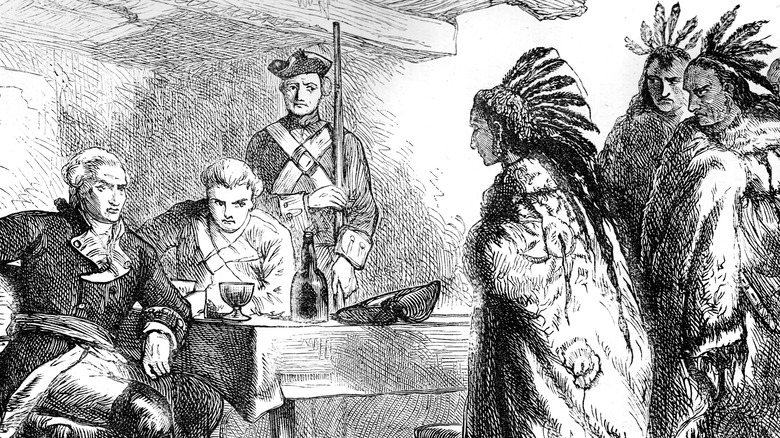
How One Vote Could Have Changed Everything In The Reconstruction Era
Following the unimaginable horrors brought by way of the transatlantic slave trade, the Reconstruction Era was presented as a time of progress and positive change. This unique time period was meant to be the start of a new era of rectification, reparations, and political and socio-economic justice for African Americans (via Britannica). In the spirit of freedom from slavery and war, the U.S. introduced promising constitutional amendments and new legislation meant to level the playing field by giving individuals of African American descent the right to vote, among other things.
Sadly, the New Georgia Encyclopedia reports that many of the initial efforts of Reconstruction were ruined at the hands of the Klu Klux Klan and other organized hate groups. Acts of racially-motivated terrorism effectively resulted in hundreds of documented murders. But it was the death of an 1890 piece of legislation that arguably did the most damage (via History, Art, & Archives). Had the Federal Elections Act survived in the Senate, African American voting rights, and the political power that coincided with them, might have prevented the horribly oppressive Jim Crow laws that followed.
The US Senate killed the Federal Elections Act, causing irreparable damage
In 1890, a full 13 years after the Reconstruction Era is known to have ended, one lone bill stood between freedom and further oppression. This was the Federal Elections Act, also known as the Lodge Bill, because it was proposed by Massachusetts Representative Henry Cabot Lodge (via History, Art & Archives). In brief, the bill was proposed with the goal of ensuring fair elections, particularly with African American voters and representatives in mind.
The New York Times reports that Southern Democrats vehemently opposed the bill, declaring it unconstitutional. In fact, not a single democrat voted in favor of the Federal Elections Act at the time that it was narrowly passed by the House of Representatives. Against all odds, the bill made its way to the Senate, where it was filibustered by the Democratic Party. With this final legislative lifeline gone, the New Mississippi Constitution was ushered into effect. Decades of racial oppression and hardship from voter suppression to segregation, and from educational inequalities to unjust incarceration, followed (via Library of Congress).

Here's What Might've Happened If Malcolm X Survived His Assassination

This Is Where Jimi Hendrix Is Buried

How Lucille Ball Is Connected To The Salem Witch Trials

The Truth About Erik Menendez's Wife, Tammi

The Forgotten History Of The Swimmobile

The Truth About Richard Nixon's Assassination Attempt

What Really Happened To Children Of God Founder David Berg?

The D.B. Cooper Theory That Would Change Everything

Here's Why The Tiananmen Square Protests Really Started

Here's How The French And Indian War Came To An End























